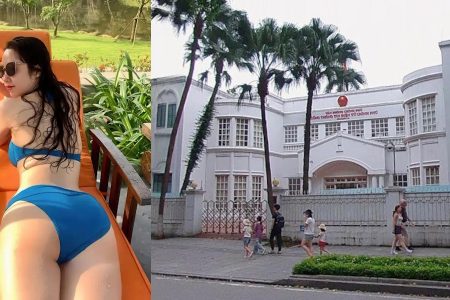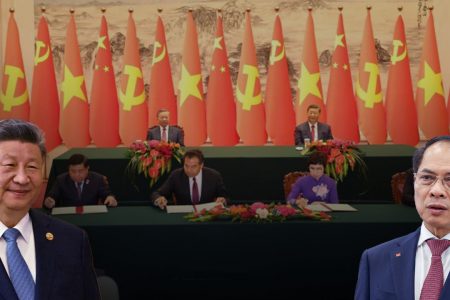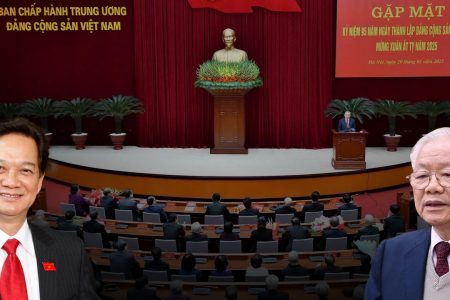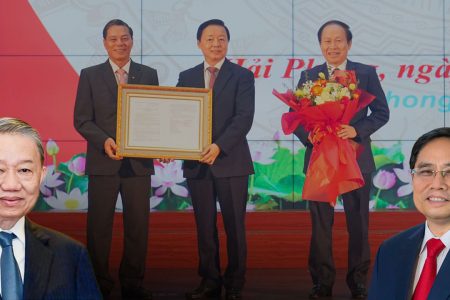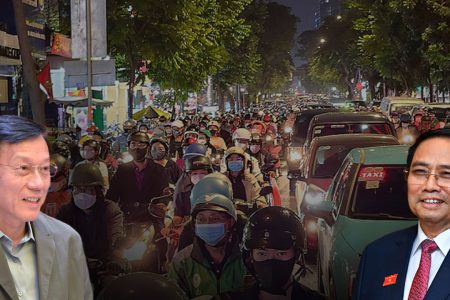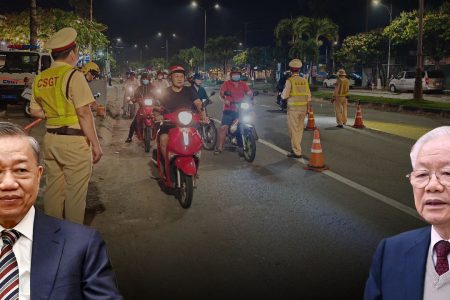
Vietnam’s state-controlled media said that because it is difficult to have new party members, the ruling Communist Party in this country now wants to expand its admission into the “middle-class, well-off and successful” group.
ZingNews newspaper quoted statements from some local Communist Party secretaries, citing difficulties in admitting new party members.
For example, from Dong Khe ward, Hai Phong, ward Secretary Dam Thi Minh Phuong said:
“In recent years, the Party Committee has only admitted a few new members, mainly union members, and young people. Very few people belong to the groups of business people, freelancers, engineers, or entrepreneurs… Many people successful business, well-off, social status but not interested in joining the Party.”
According to Ha Long City Party Committee, the source of Party membership development is mainly based on the youth union force in the neighborhood.
“But now this force is getting smaller and smaller. While people in the rich, middle-class, and freelance groups in the area want to have time to focus on doing business, they can’t spend time to participate in Party work.”
In Bich Dong (Viet Yen district, Bac Giang province), Party Secretary Nguyen Van Phuong was quoted as saying that “when people’s incomes are getting higher and higher, urbanization is fast, there is a paradox that Party development is even more difficult.”
Obstructed by old ideology?
In principle, the Communist Party of Vietnam was proud to be the “vanguard army of the working class and the toiling people” rising from the revolutions in this country.
But in the Doi Moi/Renovation period, the traditional revolutionary-style Leninist ideology was interpreted more broadly, attaching to the national character, that is, including all social sectors:
The Party leads the working class, the toiling people, and the Vietnamese nation, successfully carrying out the national revolution and people’s democracy, leading the country to socialism, striving for the following goals: “rich people, strong country, democracy, justice, civilization,” according to an official document.
But the Communist Party’s relationship with the middle class, which, by popular definition around the world, is the foundation of bourgeois democracy, is not as good as that of other classes.
After the initial radical phase with the slogan of “destroying land riches“, the Communist Party of Vietnam, especially under President Ho Chi Minh, used intellectuals and nationalist bourgeois.
But like journalist Tran Tien Duc, son of the late mayor of Hanoi, doctor Tran Duy Hung, the Communist Party “uses them without respecting intellectuals.”
In an article on BBC on September 23, 2021, he wrote: “The thought of ‘The richness of the land dug up to its roots’ dating from the Tran Phu era still has a great influence on the thinking and policies of the Communist Party of the Communist Party of Vietnam.”
According to Mr. Le Quang Thuong – former Deputy Head of the Standing Committee of the Central Organizing Committee – recalled in ZingNews, “During the Revolutionary period, the Party and State leaders trusted and respected the people’s bourgeoisie and intellectuals of that time.”
“Many of them, after following the revolution, were enlightened to their ideals and then stood in the ranks of the Party, making great contributions to the country.”
It seems that now the Communist Party of Vietnam needs this group of residents, according to former deputy head of the Central Organization Department:
“Many people in the well-to-do group are good economic people, have confirmed their social status, many people are knowledgeable, well-trained, have an idea of life…”
“Therefore, if discovering and fostering these people to strive to stand in the ranks of the Party, it is like finding talented people who will be more helpful to the Party and the country…”
People don’t like to become party members because the Party lacks vitality and corruption?
The “boring of the Party” has been a phenomenon in Vietnamese society for more than 10 years, nothing new.
In a document on cultural and ideological education in Vietnam in 2009, the phrase “bored with the Party and have no political interest” was stated.
In 2017, it was President Nguyen Phu Trong who repeated this story and warned about the risk of “boring the Party, dry of the Union, pale of politics” during his visit to Hai Phong (November 15).
“The General Secretary especially noted that it is necessary to be very perceptive, thereby preventing the situation of “boring the Party and losing political interest” and “corruption,” Vietnamese media wrote at that time.
Also in 2017, former Vice President Nguyen Thi Binh raised the issue of the number of Communist Party members in Vietnam being “large but not of good quality.”
“Right now, our party membership is probably the second largest among the Communist parties, after China,” she said.
“If the majority of Party members are people who meet the standards as set out in the Party Charter, good citizens, exemplary, responsible cadres, working for the country, for the people … then surely the situation of the country is much better than it is now.”
Real estate and finance
Many private businesses and urban residents who are considered ‘successful’ by specific standards in Vietnam today have not been interested in joining the Communist Party.
On the other hand, Doi Moi also allows Vietnamese people to live, do business, advance and succeed without necessarily clinging to the political apparatus.
Former US Secretary of State, John Kerry remarked when he returned to Vietnam in 2016 that in Vietnamese society he only saw capitalism.
One statistic shows that the number of communist party members in Vietnam is more concentrated in the North and North Central region than in the South.
Bloomberg published a map in 2015 and the data they say is that up to 70% of the members of the Vietnamese Communist Party are concentrated in the North.
Coexistence with a market economy and a form of capitalist society – both highly profitable for the Communist Party of Vietnam, and poses many challenges.
In addition to the need to rejuvenate, attract intellectuals, and the middle class, the Communist Party has also been criticized for abandoning the working class or the rural poor.
A recent BBC article expressed the opinion of an observer of union activities in Germany that because of its monopoly on Vietnamese trade unions, the political system has failed to take good care of workers during the Covid pandemic.
Regarding foreign affairs, officials and leaders of the Communist Party of Vietnam, when going abroad, also prefer to meet businessmen and investors rather than communicate with trade unions, groups that struggle and oppose capitalism.
Organizations of the Communist Party of Vietnam have long been absent from forums, rallies of the left, feminism, and international workers’ movements.
This contradiction between claims and actions makes even leftist groups who should have loved the Communist Party of Vietnam pay little attention to the particular model of socialism in this country.
Sociological researchers and propaganda of the Communist Party of Vietnam are also absent from forums about a new socialism, about ‘Social Europe‘ which is taking place actively.
This rigidity of thinking may be one reason why successful intellectuals and people who are interested in humanity’s problems can’t find intellectual answers in the Communist Party of Vietnam.
Moreover, at present, the Communist Party of Vietnam has over 5 million members, but the trend of the population dividing into new classes, in accordance with the laws of society, signals that this party will no longer be so strong in the future.
“The number of the middle class will reach tens of millions of people, playing an important role in production, consumption and leading the economy,” said Assoc. Prof. Dr. Hoang Van Cuong – Vice President of National Economics University
He said that with such a large number, the development of the Party in this population is a practical issue that is posed and needs proper attention, the newspaper reported.
Thoibao.de (Translated)



